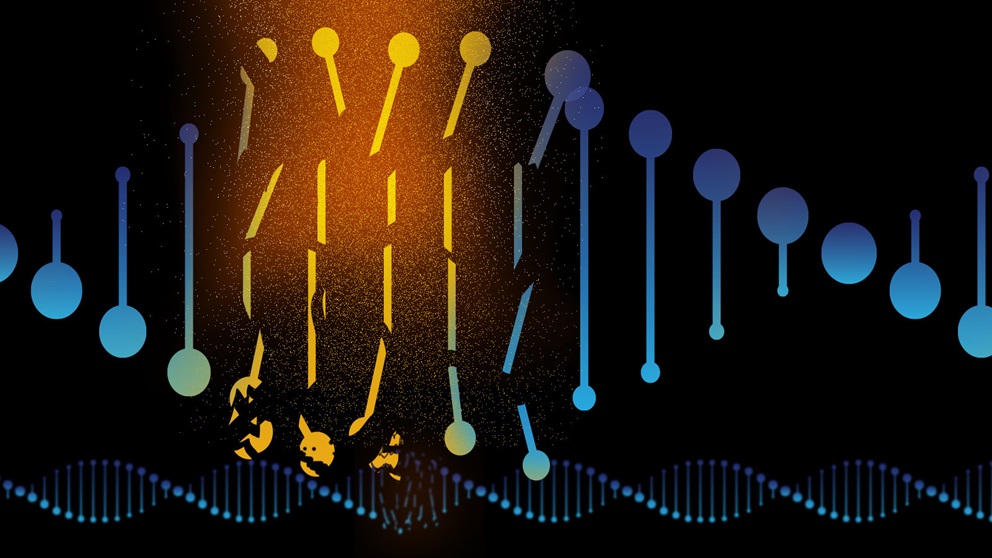Nature publication: High resolution DNA-image of metastatic tumor provides new treatment insights

For the first time, Dutch researchers have created a detailed overview of the landscape of DNA-deviations in thousands of metastatic tumors. On Wednesday 23 October 2019 Nature published the paper “Pan-cancer whole genome analyses of metastatic solid tumors”. The research team portrays the differences between metastatic and primary tumors. In 62% of patients, actionable events were found, leading to potential new treatment options that target specific characteristics of individual tumors. The publication highlights a unique Dutch collaboration that supports a self- learning health care system; the central database of metastatic cancer patients supports treatment decisions for current patients and drives research for improvement of treatments for future patients.
Learnings from DNA-deviations are key to finding the right treatment
Cancer is known as a genetic disease. DNA-deviations in tumor cells determine the characteristics of the tumor and provide insights in disease progression and treatment response. Supported by the latest “whole genome sequencing”-techniques, researchers are able to map complete DNA-codes. The technique enabled the analysis of metastatic tumors of over 4,000 patients and provided the foundation for the largest genetic database of metastatic tumors worldwide. The database carries unique research value and is accessible globally to support academic research on the improvement of cancer treatments.
Database established via unique national collaboration
The study was conducted in the setting of a nation-wide collaboration of 49 hospitals and coordinated by the Dutch Center for Personalized Cancer Treatment (CPCT) and Hartwig Medical Foundation. Within the research setting of the CPCT, tissue samples of patients and clinical data were collected. Hartwig Medical Foundation provided for the DNA-sequencing test, the consecutive extensive data-analyses and the database with genetic and clinical data.
Results: indications for treatment- and clinical research options in 62% of patients
The publication shows that DNA-mutations are different between tumor types with respect to the type of aberration as well as the genes that are affected. In order to understand the characteristics of a tumor well enough, taking a “high resolution genetic image” of the tumor is crucial. An extensive DNA-test enables the making of these images. By following this approach, potential clinically actionable events were found in 62% of patients, and provided indications for either personalized treatment or clinical research options. In 31% of patients indications showed eligibility for registered drugs; 18% qualified for on-label (reimbursed) treatments and 13% qualified for off-label treatments (not reimbursed). In the Netherlands, availability of off-label treatments is increasingly available via the DRUP study, a trial protocol that studies the efficacy of such treatments. The other 31% of patients might qualify for experimental treatment in the setting of clinical trials with novel drugs.
Thanks to the work in this Nature publication and other related studies, the Erasmus University Medical Center in Rotterdam has recently decided to adopt the extensive DNA-test in the treatment pathway for patients without any remaining standard treatment options.
You read an article in the category Whole genome sequencing. You may also be interested in Biomarker, Hartwig Medical Database, OncoAct, Participating hospitals, Personalized treatment, Scientific publications All newsAlso read

Measuring the effects of radiotherapy on cancer may open up avenues for treatment
Radiotherapy works by damaging the DNA of cancer cells. It’s an effective strategy overall, but many cancers have subsets of …

Towards a learning healthcare system by broad collaboration
Developing a new drug is expensive and takes a long time. In addition, there is only a slim chance that …

Antoni van Leeuwenhoek hospital brings comprehensive DNA test closer for all cancer patients
This year, Antoni van Leeuwenhoek hospital joined forces with Hartwig Medical Foundation to deploy the most comprehensive DNA test available …

The fact that the CPCT, together with Hartwig Medical Foundation, has managed to bundle data, knowledge and expertise from almost all Dutch hospitals is unique and now also deserves international attention.